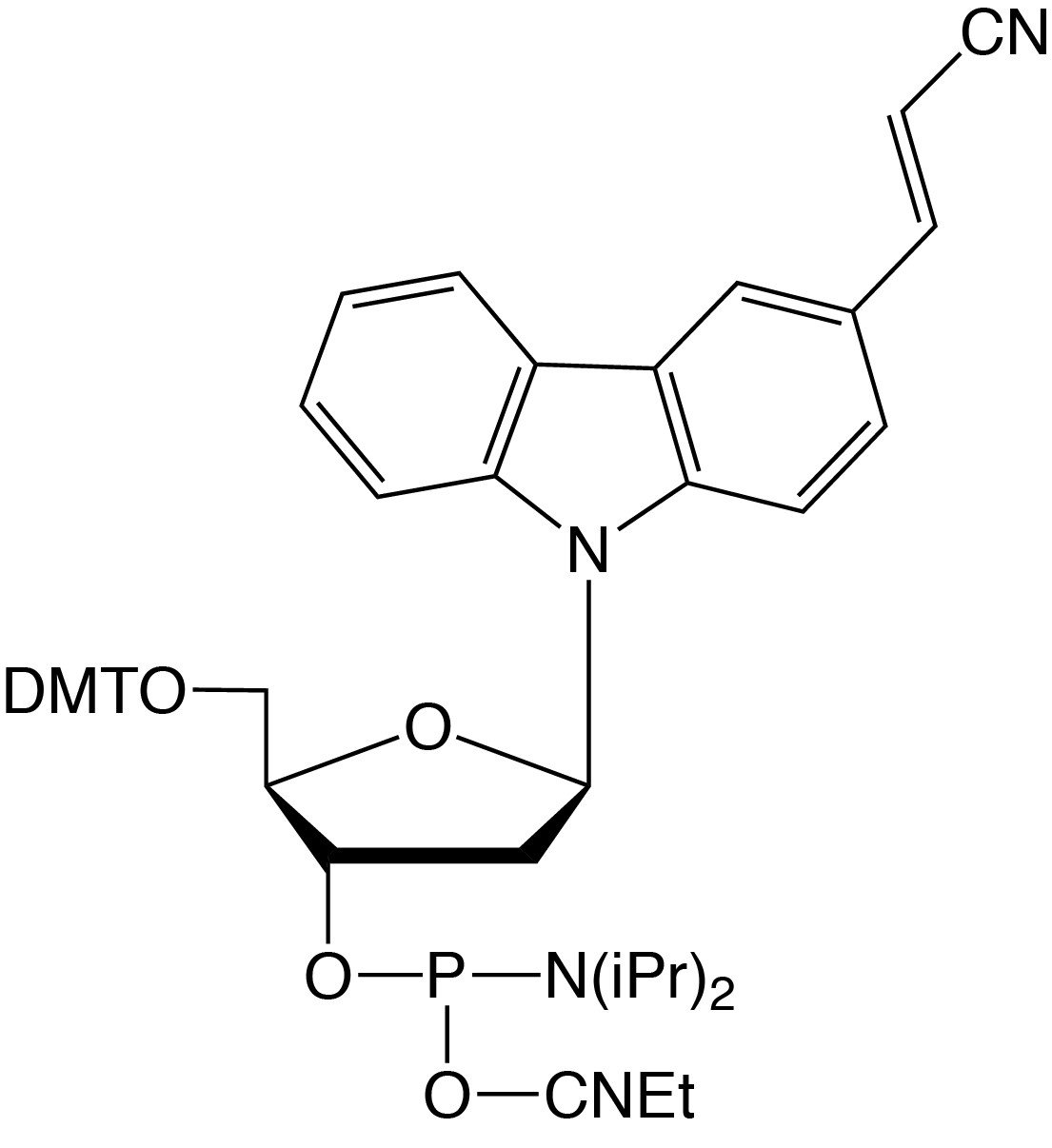
The ability to selectively photo-crosslink a complementary target DNA or RNA strand has a myriad of uses. However, traditional procedures to do so (e.g. psoralen) require long, 20 minute irradiation times with a crosslinking efficiency that is approximately 70%. Furthermore, the wavelength used for photo-reversal of the crosslink is typically 254 nm, which can lead to photoadducts such as a thymidine dimer. Professor Fujimoto from the Japan Advanced Institute of Science and Technology (JAIST) developed a novel photocrosslinker —3-cyanovinylcarbazole nucleoside (CNVK)—that shows a remarkable ability to photo-crosslink pyrimidines of target strands. Irradiation at 366 nm of a duplex containing CNVK opposite thymidine results in 100% cross-linking in 1 second and quantitative crosslinking opposite cytosine in 25 seconds. The photo-reversal of the crosslink was accomplished with irradiation at 312 nm in 3 minutes. This facile reversal reaction is therefore accomplished with no damage to normal DNA. Further research has shown that CNVK can also be cross-linked to an adjacent RNA strand.
Click here for flyer

Diluent: Anhydrous Acetonitrile
Coupling: Regular. The use of UltraMILD monomers are preferred. (Catalog Numbers: dA: 10-1601-xx, dC: 10-1015-xx, dG: 10-1621-xx, dT: 10-1030-xx). To avoid any exchange of the iPr-Pac group on the dG with acetyl, use the UltraMild Cap Mix A (40-4210-xx/ 40-4212-xx).
Deprotection: If UltraMILD reagents were used, deprotect in 0.05M Potassium Carbonate in Methanol for 4 hours at Room Temperature OR for 2 hours at Room Temperature in 30% Ammonium Hydroxide. If standard bases were used, deprotection in Ammonium Hydroxide at Room Temperature for 24-36 hours will give acceptable yields. For photo cross-linking conditions please see http://www.glenresearch.com/GlenReports/GR23-14.html.
Storage: Freezer storage, -10 to -30°C, dry in the dark. Light sensitive material.
Stability in Solution: 1-2days
Learn more about the 3-Cyanovinylcarbazole Phosphoramidite (CNVK) in the Glen Report
If you cannot find the answer to your problem then please contact us or telephone +44 (0)1954 210 200